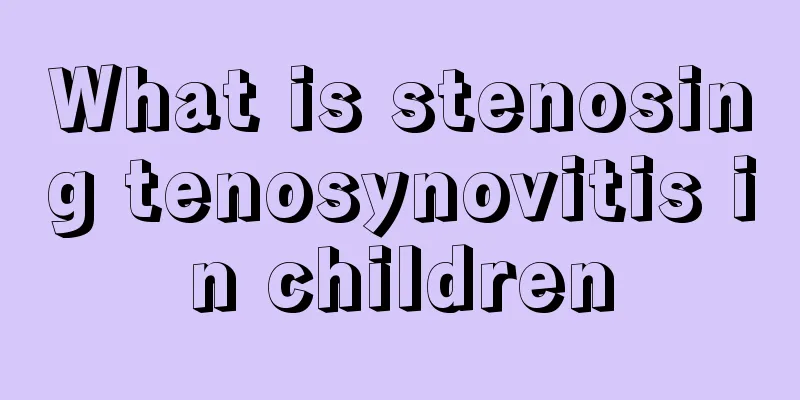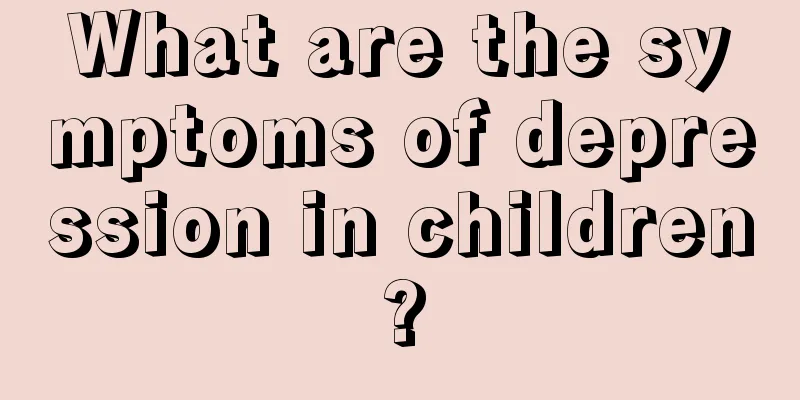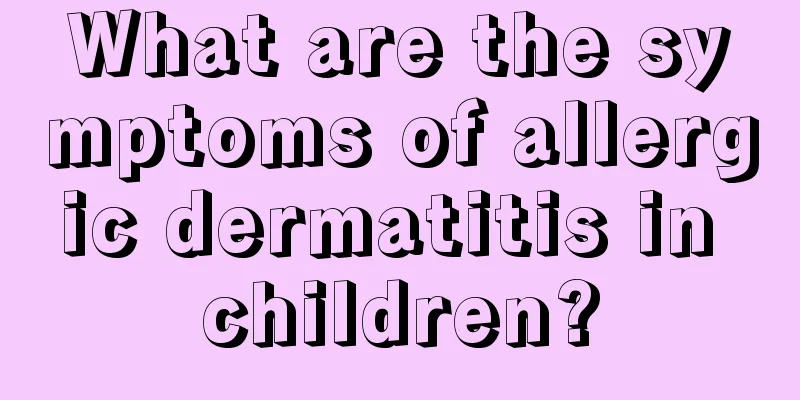What is stenosing tenosynovitis in children

|
If a child suffers from stenosing tenosynovitis, it means serious damage to the child's body, and if it is not effectively treated, it will cause disability. Therefore, for many children with this disease, parents want to fully understand what stenosing tenosynovitis is in children. The following is a detailed introduction so that you can have a comprehensive understanding. "Snapping fingers" in children, also known as stenosing tenosynovitis or trigger finger, is a common congenital malformation in children. Because the flexor tendons of the fingers are located at the distal end of the metacarpophalangeal joints, they are constricted by the stenosing fibrocartilaginous lesions of the tendon sheath, causing the proximal tendons to thicken or become nodular, making the interphalangeal joints flexed and unable to be actively straightened, causing pain or snapping during passive stretching. Children with snapping fingers generally do not show symptoms at birth. It is common for the fingers to flex and cannot be straightened when they are around 6 months to 2 years old. The most common sites are the metacarpophalangeal joints of the second and third fingers of the thumb. A round raised nodule can be felt, with slight tenderness. There is a bouncing sensation when flexing and extending the fingers, while the interphalangeal joints are in a fixed flexed state, and there is a snapping sensation when moving and stretching. Since congenital tendon sheath stenosis cannot heal itself and may affect finger development in the future, treatment should be given as early as possible. Generally speaking, conservative treatment is not effective, while surgery is effective. The operation should be performed through a transverse incision at the palm side of the metacarpophalangeal joint, and the narrow tendon sheath should be cut longitudinally to allow the enlarged tendon to pass through. During the operation, the stenosis must be completely loosened to avoid damage to blood vessels and nerves. Functional exercises should be strengthened after the operation to avoid recurrence of adhesions. Stenosing tenosynovitis in children (trigger finger) refers to the thickening of fibers at the opening of the flexor tendon sheath in children, which makes it impossible for the thickened tendon to pass through, resulting in the inability to straighten the fingers. After fully understanding the above content, I believe that many parents have a comprehensive understanding of childhood stenosing tenosynovitis. After a comprehensive understanding, in order to prevent this disease from causing serious harm to the child's body, it is necessary to go to a regular hospital as soon as possible after a comprehensive understanding and receive comprehensive treatment to allow their children to recover as soon as possible. |
<<: What to do if your baby always gets better from a cold
>>: The reason why baby has red spots in the eyes
Recommend
Symptoms and treatment of dysentery in children
Dysentery is a common gastrointestinal disease in...
Treatment for newborn spit-up
Newborn spitting up often makes our parents at a ...
What to do if your child's anus is red
If a child's anus appears red, this is quite ...
What should I do if my child has no appetite?
If a child cannot eat well and has no appetite, i...
Can erythromycin be used for baby's red bottom
Baby red bottom is a common skin disease in young...
What should I do if my child has a fever after vaccination?
Because there are so many uncertain diseases that...
What should I do if my baby has severe picky eating?
Parents should pay enough attention to their baby...
What to do if your child has bacterial tonsillitis
Since children's bodies are not yet fully dev...
What is the cause of the child's sternum protrusion?
It is said that children are the flowers of the m...
What to do about growing pains in children
Growing pains in children are a problem that many...
Why does my baby shake his head when he has a fever?
It is common for babies to be weak because they a...
How to take care of baby's dry eczema
Babies are most susceptible to eczema. Once eczem...
Why has my child been blinking recently?
Some parents may often encounter the phenomenon o...
How much sleep do children normally get in a day?
Sleep is especially important for children. Compa...
Reasons why breastfed babies have less bowel movements
In fact, it is very difficult to take care of you...









